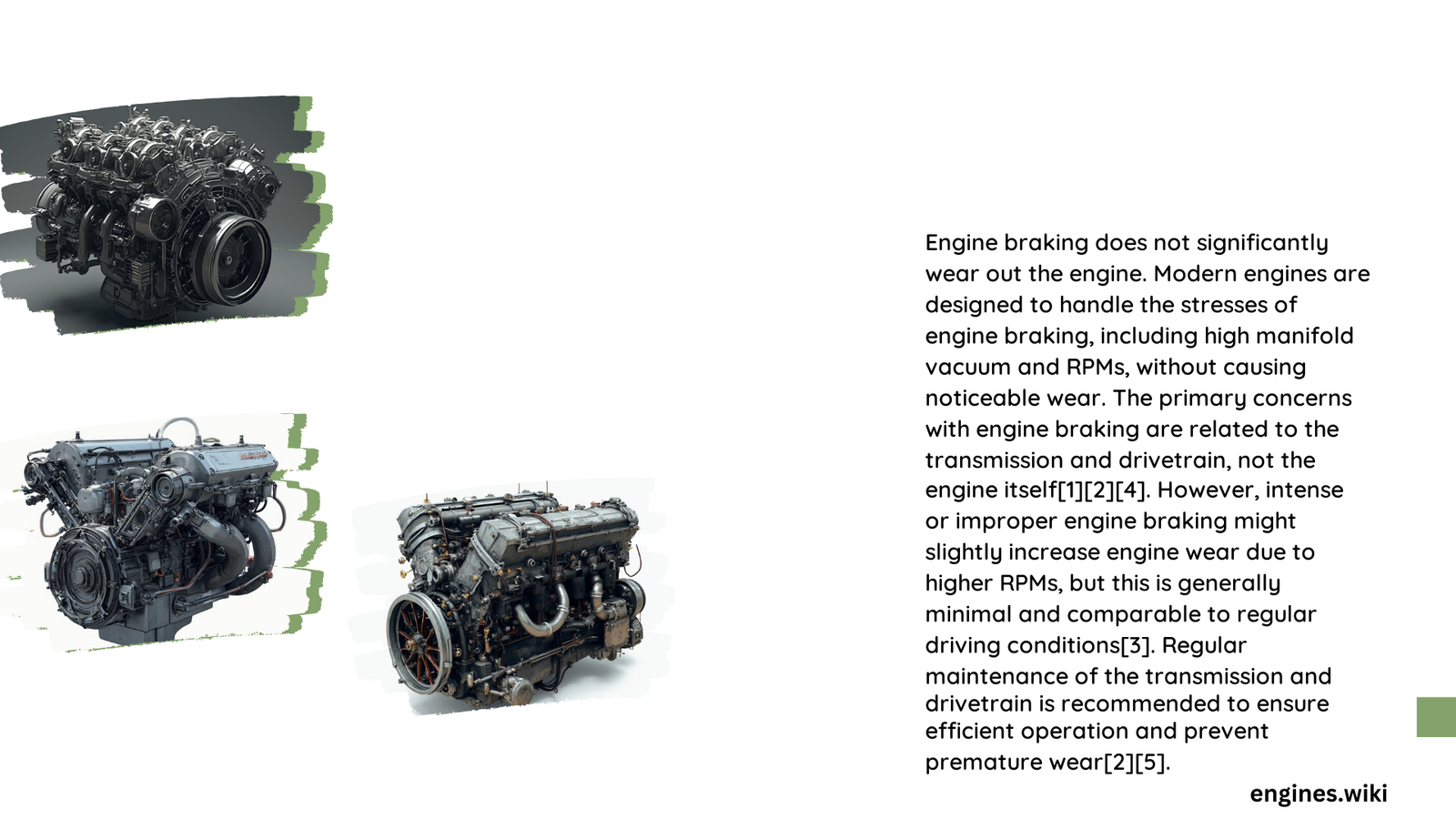Engine braking is a driving technique that can help reduce brake wear and provide better vehicle control, but many drivers worry about its potential long-term impact on their engine’s health. Understanding the nuanced relationship between engine braking and mechanical wear is crucial for responsible vehicle maintenance and optimal performance.
What Happens During Engine Braking?
Engine braking occurs when a driver removes the accelerator and allows the engine’s compression to slow down the vehicle, typically by downshifting in manual transmission vehicles or using lower gears in automatic transmissions. This process creates resistance in the engine’s mechanical system, converting kinetic energy into heat and mechanical friction.
Does Engine Braking Cause Significant Mechanical Stress?
| Mechanical Component | Stress Level | Potential Impact |
|---|---|---|
| Pistons | Low | Minimal wear |
| Crankshaft | Low | No substantial damage |
| Transmission Gears | Moderate | Depends on technique |
| Clutch | Variable | Depends on shifting method |
How Proper Technique Prevents Engine Wear

Proper engine braking techniques can actually minimize mechanical stress:
- Smooth Downshifting: Gradual, well-timed gear changes reduce sudden mechanical load
- Rev Matching: Synchronizing engine speed during downshifts prevents unnecessary friction
- Avoiding Aggressive Shifts: Gentle transitions protect transmission components
What Factors Influence Engine Wear During Braking?
Several critical factors determine the potential for mechanical wear:
- Driver’s Skill Level
- Experienced drivers typically cause less mechanical stress
-
Smooth, calculated movements reduce potential damage
-
Vehicle Design
- Modern engines are engineered to withstand compression braking
-
Transmission and engine components have improved durability
-
Maintenance Quality
- Regular oil changes
- Proper lubrication
- Timely component inspections
Can Engine Braking Extend Vehicle Life?
Counterintuitively, engine braking can offer potential benefits:
- Reduces brake pad wear
- Provides better control on steep descents
- Helps maintain consistent vehicle speed
- Minimizes transmission heat buildup
Expert Recommendations for Safe Engine Braking
Professional mechanics suggest:
- Learn proper downshifting techniques
- Use engine braking sparingly
- Maintain consistent vehicle maintenance
- Listen to your vehicle’s performance signals
Potential Risks of Improper Engine Braking
While generally safe, incorrect techniques can cause:
- Premature clutch wear
- Increased transmission stress
- Unnecessary mechanical friction
- Potential gear synchronizer damage
Conclusion: Balanced Approach to Engine Braking
Engine braking, when performed correctly, does not significantly wear out an engine. The key lies in understanding your vehicle’s mechanics, maintaining proper technique, and ensuring regular maintenance.
Technical Insights
- Modern engines are designed to handle compression braking
- Mechanical stress is minimal with proper technique
- Regular maintenance remains the primary factor in engine longevity
Reference:
– SAE International Automotive Engineering Journal
– Automotive Maintenance Technical Guidelines
– Professional Mechanics Association Research
